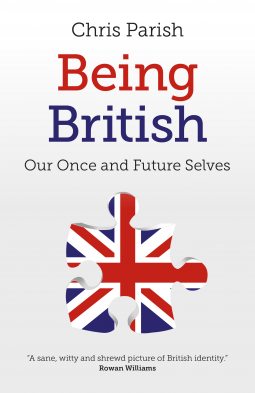
Being British
Our Once And Future Selves
by Chris Parish
This title was previously available on NetGalley and is now archived.
Send NetGalley books directly to your Kindle or Kindle app
1
To read on a Kindle or Kindle app, please add kindle@netgalley.com as an approved email address to receive files in your Amazon account. Click here for step-by-step instructions.
2
Also find your Kindle email address within your Amazon account, and enter it here.
Pub Date 24 Jun 2016 | Archive Date 27 Jul 2016
John Hunt Publishing Ltd | Chronos Books
Description
A Note From the Publisher
Chris Parish is passionate about British culture and identity, having spent years studying the subject. He directed a UK charity for over two decades and is an accomplished speaker on human development.
Advance Praise
This is a sane, witty and shrewd picture of British identity—neither cynical nor paranoid, which is quite an achievement. Chris Parish sketches very skilfully the history and habits that make up this many-layered identity and gives us some essential tools for working out what we can properly celebrate, what we should properly regret and what we might reasonably hope for—what a mature sense of national self-esteem might look like.
Dr Rowan Williams, former Archbishop of Canterbury, theologian, Master of Magdalene College, Cambridge
Available Editions
| EDITION | Other Format |
| ISBN | 9781785353284 |
| PRICE | CA$38.95 (CAD) |
Average rating from 12 members
Featured Reviews
We cannot escape our nationality!
I will not be pretentious and say that I understood everything in this book. I didn't. But I can honestly say that I enjoyed what I did understand. It was fresh and there were things I had never pondered about, not until I read this book.
I especially enjoyed Parish's words on British pessimism from the best selling books with awfully negative titles and then with broken gym equipment branded with signs stating their dysfunctional state. Why do we not resolve our issues? Complaining doesn't solve anything. I'm sure it's an English proverb which dictates "there is no use crying over spilled milk". As Parish writes: "...a common characteristic of British culture is to complain while having no intention of doing anything about it."
He later asks: "...why do we British tend to have this pessimistic glass-half-empty attitude to our country and to life?" And, I feel that yet it may be because of the fall of our Great Empire but it's socially ingrained in us. If we are remotely happier than our peers, something 'big' must have happened. All of us, British individuals, share this same thought: why so pessimist? Is it just because these pessimistic attitudes are prevalent in the tv soaps we watch for entertainment? Eastenders, anyone?
I enjoyed Parish's semi-patriotic, liberal, take on being and becoming British. The culture, the history, the values. It's always good to be reminded of the values we hold in such high regard. Parish writes: "Fair play as a British value runs deep and has roots stretching way back into our historical development as a nation. It is part of who we are, and one facet of the elusive heart of Britishness." This is almost poetic, and I'm pleased that I'm not nostalgic about it: we still value it, today (what, with our practice of 'queuing' and all)
Now before you dismiss the opportunity to read this book, do understand that this book is different to what you're used to. It's not a handbook of what it entails to be a Brit, it is a brilliant account of how our British nationality influences us, in the present day.
Chris Parish recognises that: "Books about the English or the British tend to give lists of peculiar habits and characteristics of ours which are supposed to be definitive of our nationality, but inevitably they are superficial and also tend to be rather silly stereotypes: we are tea drinking, warm-beer swigging, cricket loving, Marmite scoffing, fish & chip enthusiasts; reserved folk who are very polite and at the same time repressed and feeling permanent embarrassment for the mere fact that we exist; saying sorry for having our own foot trodden on by someone else." And, I'm pleased to remark that this book is nothing of the sort.




